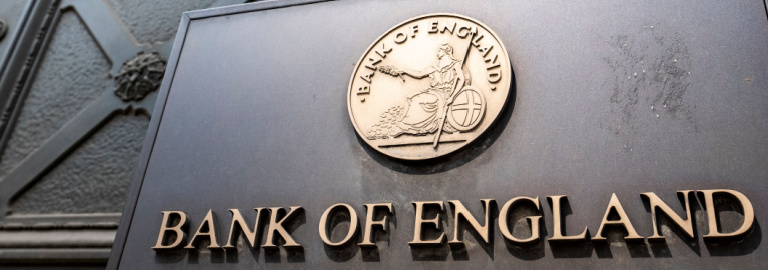SMEs to ‘feel the pinch’ of UK interest rate rise, warn FSB, Azets
The Bank of England has risen interest rates for the 10th consecutive time
The Bank of England has risen interest rates for the 10th consecutive time

Cashflow management and forecasting are set to become even more critical for small businesses in the UK as interest rates reach their highest level for 14 years, accounting experts say.
“For SMEs, interest rate rises will continue to hurt and even more will feel the pinch, especially those on variable rate lending and others with low fixed rate funding nearing maturity,” says Mark Barrie, funding and strategic partnership director at Azets.
“As the UK heads towards a recession, it is critical that SME leaders stay on top of their business model and cashflow forecasting, and act quickly at the first signs of distress.”
Voting by a majority of 7-2, the Bank of England’s (BOE) Monetary Policy Committee (MPC) agreed on February 1 to raise the Bank Rate by 0.5 percentage points to 4% – it’s highest level since the 2008 financial crisis.
In a statement accompanying the announcement, the central bank said that domestic inflationary pressures have been “firmer than expected”.
This is the 10th time in a row the rates have been raised. They stood at just 0.1% in December 2021.
Alex Smith, director of consulting services at tax compliance provider Sovos, argues that SMEs will face the combined struggle of finding affordable credit while consumers become increasingly conscious of spending levels.
“This [rates hike] will undoubtedly have an impact on SMEs. Consumers will also feel the effects as those with borrowings such as variable mortgages will now have to pay more to cover these monthly costs.
“This will ultimately lead to less disposable income to spend on consumer goods and services.”
The Federation of Small Businesses expressed similar concern, arguing that SMEs now face a “double blow” alongside rising inflation and utility costs, and that the UK government must act to bring this under control.
“This structural financial vulnerability is feeding through to insolvency numbers, and we’re concerned that 2023 will see a flood of more business closures,” said FSB national chair Martin McTague in a statement.
“The Budget in six weeks’ time must be grasped as an opportunity for the government to promote a growth agenda.”
However, announcing the rates hike on February 2, the BoE signaled that borrowing costs may be nearing their peak.
While the latest forecasts indicate that rates may reach 4.5% in the Spring, they are expected to fall back down to 3.5% in 2024.
In the minutes from the February 1 meeting, the BoE MPC said it would “adjust the bank rate as necessary to return inflation to the 2% target”.
“Small businesses are hoping against hope that today’s rise in the base rate will signal a turning point in the Bank of England’s battle to bring inflation under control,” the FSB’s McTague added.
For Lee Murphy, managing director at The Accountancy Partnership, SME’s can “ride out the storm” by being vigilant when it comes to planning and forecasting.
“Ensuring your bookkeeping is as up-to-date and accurate as possible makes it easier to spot trends in your data.
“You can then analyse these data points to make any necessary changes to endure increased interest rates like these.”